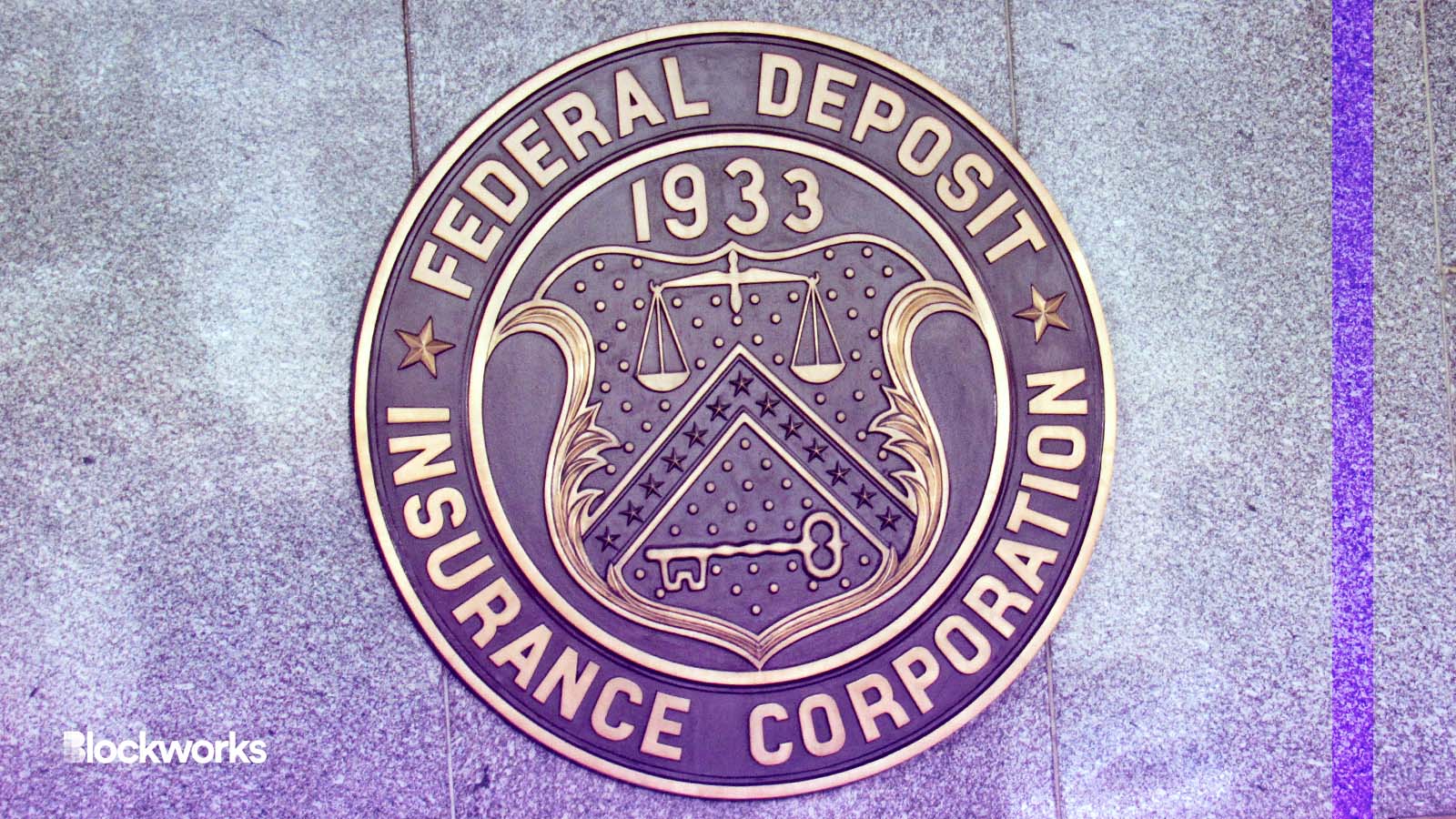Banks Should Back Deposits From Crypto Customers With Cash: US Agencies
Banks should not lend deposits made by crypto customers and should hold cash to back all deposits, the statement said

Daniel J. Macy/Shutterstock.com modified by Blockworks
US financial regulators joined forces again this week to make sure banks got the message: They need to take risks associated with crypto seriously.
But so far, no new requirements have been issued.
Firms have been put on notice that careful risk assessments need to happen, but the latest statement is in no way creating new policies, the Federal Reserve, Federal Deposit Insurance Company (FDIC) and the Office of the Comptroller of the Currency (OCC) said.
The new statement, issued Thursday, is intended to “remind banking organizations to apply existing risk management principles” when it comes to crypto-related activities.
Banks should consider “concentration and interconnectedness” across deposits and potential liquidity risks. Firms are also advised to complete “robust due diligence and ongoing monitoring” of all crypto activity.
Thursday’s statement is an update to the warning issued by the same three groups in January. The agencies are primarily concerned with volatility and liquidity risks on exchanges and with stablecoin reserves, the new statement added, and banks need to take the proper precautions.
Regulators said banks should not lend deposits made by crypto customers and should hold cash to back all deposits.
“One read of the follow-up is that it’s positive insofar that the regulators specifically clarify they aren’t banning banks from banking crypto,” Galaxy Digital analysts wrote in a note Friday. “This could be seen as slightly softening their prior guidance and genuinely providing a bit more clarity.”
On the other hand, the statement could simply be preemptive of future policy, analysts added. It’s no secret Congress and the SEC are taking a harsher look at the industry, and it’s only a matter of time before banks have new guidelines.
Scrutiny of crypto access to the banking system heats up
In a Senate hearing earlier this month to discuss recent turmoil in markets, witness Lee Reiners, policy director of the Duke Financial Economics Center, urged lawmakers to isolate digital assets from financial institutions.
“We should do everything we can to restrict crypto from entering the banking system,” Reiners said in his testimony.
Banks are starting to take the hint, too. Notoriously crypto-friendly Signature Bank dropped long-term client Binance last month and Custodia’s second bid for Fed supervision was unanimously denied Thursday.
Custodia is now suing the Fed Board and its Kansas City branch over the dispute.
“What matters is whether banks are actually being pressured or not, and there is some evidence they are,” Galaxy analysts said.
“Further, it matters whether the sum of the actions the banking regulators have taken has had an impact on bank’s risk tolerance frameworks, i.e., whether both banks that do and banks that do not provide services to the sector have sufficient clarity or are not otherwise dissuaded from providing services to the crypto sector.”
Get the news in your inbox. Explore Blockworks newsletters:
- The Breakdown: Decoding crypto and the markets. Daily.
- 0xResearch: Alpha in your inbox. Think like an analyst.






